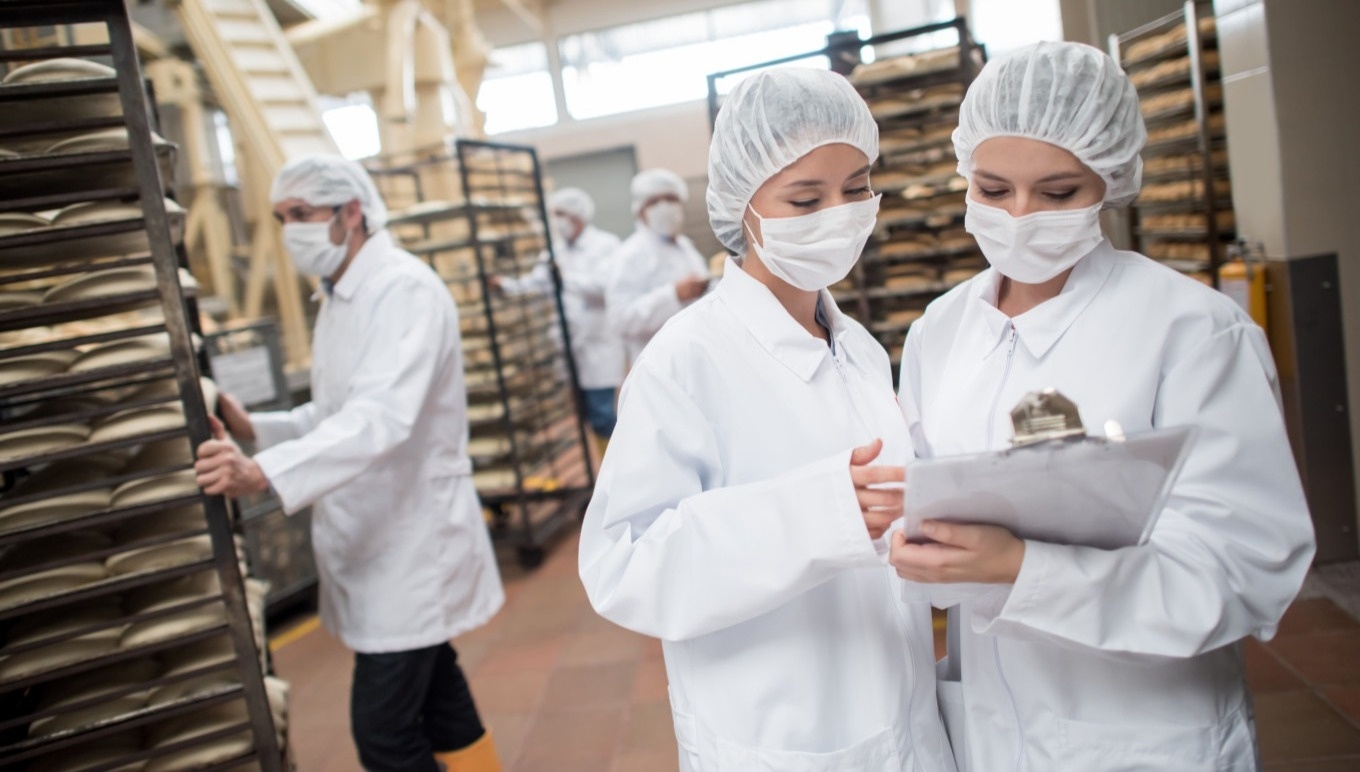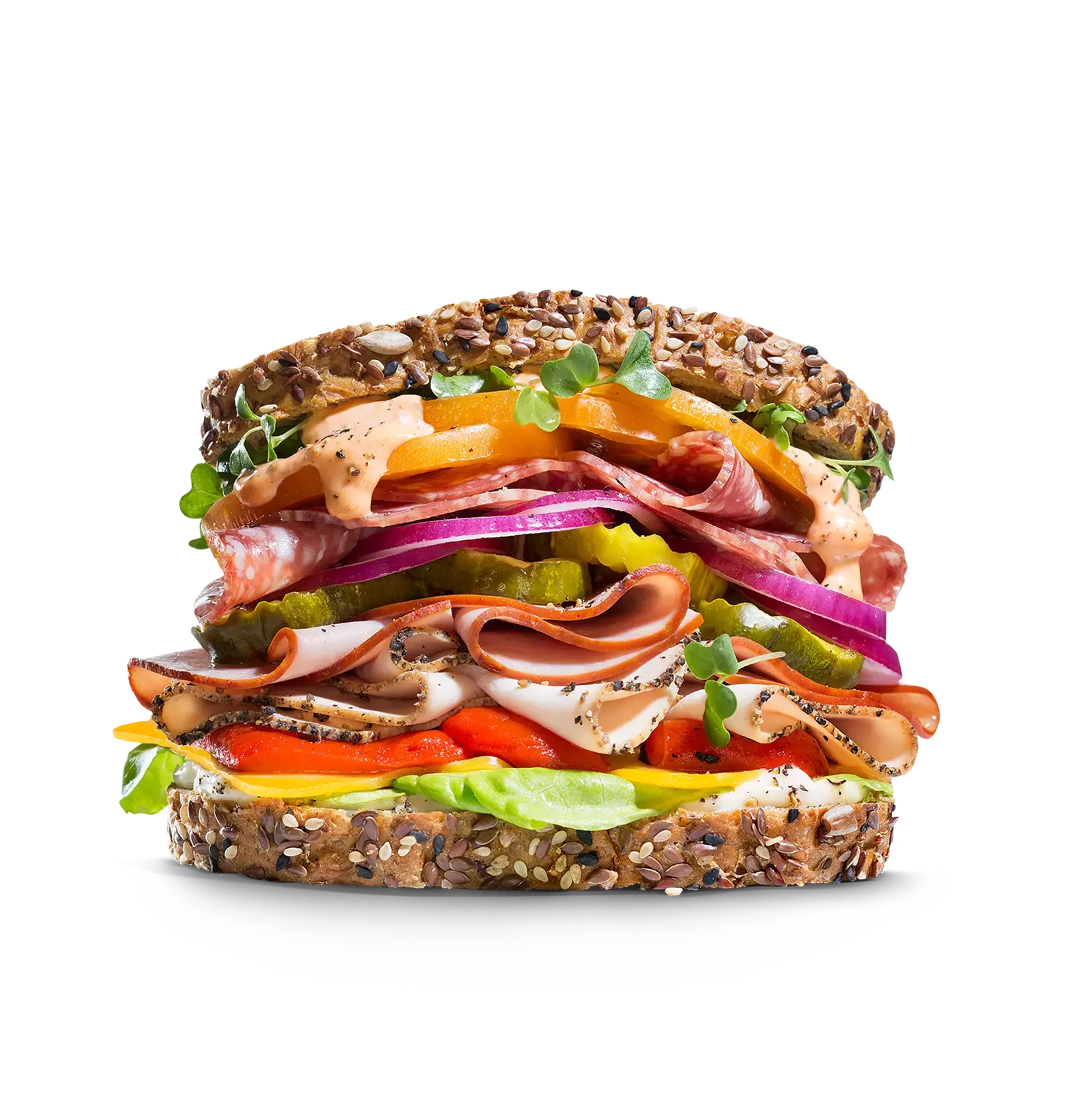Featured in this post
Comparing Food and Beverage ERP Solutions and Preparing Your Business for Implementation
Comparing Food and Beverage ERP Solutions and Preparing Your Business for Implementation

Regardless of where your food and beverage business stands in its lifecycle, you’re likely facing the pressures of tough competition and increasing consumer demands—that’s just how this dynamic, fast-moving industry works. As such, it’s in your best interest to always keep an eye out for ways to gain an advantage, and that’s true whether your organization is just coming into its own or is already well-established in the marketplace.
Considering all of the innovation that has occurred in the past several decades, the place to turn is technology—specifically, food and beverage enterprise resource planning (ERP) solutions. These platforms act as a unified source of truth for all of your departments and can facilitate excellent record-keeping, traceability, food safety and quality assurance practices.
While the all-encompassing nature of food and beverage ERP offerings make them the obvious choice for businesses looking to future-proof their procedures and product lines, the sheer number of available options can make the task of choosing the one that’s right for your organization a tough task. Not all of these solutions are created equal, and your team will need to devote time and energy to research and the selection process.
Here we’ll examine the most critical factors to consider when it comes to choosing the right food and beverage ERP solution for your company.
Identifying the Right ERP Solution
Before diving into more specific features and options you’ll want to be on the lookout for, it’s important to point out that generic ERP solutions are unlikely to be a good long-term choice. The food and beverage industry is complicated and has unique requirements, so you’ll want a system built for the challenges you face every day.
How can you identify which of the many offerings out there will really suit your organization’s situation?
First, we’d recommend compiling a list of the specific requirements that are a priority according to your sector. For example, a dairy might be most interested in the controls for costing and assigning grades to their raw milk, but for a meat, poultry or seafood business, catch weight management features may be far more important.
To get you started, we’ve highlighted some of the capabilities that are beneficial for all food and beverage businesses:
Food traceability functionalities – Look for solutions that can automatically capture extensive amounts of granular data, as this will be critical in managing your supply chain, inventory, recipes and shipments.
Ability to automate processes and integrate with equipment – The busier your facilities become with increased production, the more you’ll need to be able to offload certain responsibilities to your system.
Robust analytics tools – Take advantage of all the data your platform collects and maintains by digging into your numbers, and you’ll be able to root out inefficiencies, address food quality issues and make improvements as necessary.
Ease of use and flexible accessibility – Considering the investment of money and time that a thorough food and beverage ERP solution implementation takes, you want to make sure your employees are confident in their ability to use the interface, and a live demo is the best way to assess this aspect of any given option. Keep an eye out for advanced systems like Aptean Food & Beverage ERP, which is built on the Microsoft Dynamics 365 platform, making it instantly recognizable to those familiar with any of Microsoft’s suite of applications.
Deployment options – ERP solutions that can be managed from the cloud are ideal, as you can forego additional expenditures for on-premise hardware while also relying on the expertise, increased security and redundant servers of your provider.
With these as the first few items on your list, the next step is to add any functions that would be indispensable to your organization based on the specific processes you routinely carry out—after all, no one knows your challenges better than the folks inside your facilities, so make sure their needs are addressed.
Partnering with a Knowledgeable Provider
Providers of food and beverage ERP solutions vary as much as the platforms they offer. And can be just as critical to your eventual success as the capabilities of the software. You want to find a vendor that knows your industry inside and out and is well-established in the space. This way, they’re likely to understand your concerns at a fundamental level and also have other food and beverage clients that can share their experiences of using the software.
Implementing an ERP is an enormous undertaking, so it’s important that your provider is prepared to guide you through the process, ideally with an individual or even team of employees dedicated to making sure your deployment is a success. There should also be an expectation of a continued relationship after the system is in place, as you may need guidance on new features introduced with updates, and challenges that emerge in the future may be best tackled together.
Additionally, if you’re considering a cloud implementation, make sure that your provider’s IT and server capacity is sufficient to provide the reliability you’ll need. Solutions that are highly dependable—such as Aptean Food & Beverage ERP, with its 99.9% uptime—are virtually guaranteed to always be online and running smoothly when you need them, which may well be around the clock in your case.
Finally, there’s the matter of the culture fit between your company and the provider. Obviously, each business is different, so this is an assessment you will have to make with your internal leadership team. Keep in mind that you will be working with your ERP solution supplier for at least several months, if not years, and thus you’ll need to be compatible enough that your organization can comfortably maintain the partnership.
Properly Preparing for the Process
The journey that is implementing a food and beverage ERP solution can be long and complicated, so we will not be discussing all of the necessary steps in-depth here. However, it’s important that you’re aware of several key factors so that you can set yourself up for success.
First, it will be absolutely vital to get the buy-in and commitment from all of your employees, from the factory floor to the board room. To achieve this, you need to communicate clearly and regularly, define your vision for the implementation and clearly state what the benefits of the new system will be and why the process is necessary. Remind employees that this new platform is designed to make their jobs easier—it may come with a learning curve, but it will be worth the work they put in to learn the ins and outs of the new interface.
You’ll also want to lay out a timeline for the deployment so that you can track your progress, set expectations and make sure no critical steps are skipped. Building in milestones that can be celebrated is also a great move, as that will keep motivation high and the organizational focus centered on progress and positive results.
Also, just as your provider should designate a team to your implementation, you should do so as well. Try to pick leaders from a variety of departments to make sure the whole company is involved and feels ownership over the system and its successful deployment. And if these individuals will need assistance in carrying out their regular responsibilities while they concentrate on the implementation, make sure to provide them with that support.
Lastly, don’t forget the importance of training. Even if you’ve found a solution built on a familiar platform, your employees will need to learn all of the functions and tools necessary to carry out their tasks. They also need to know who to go to when they have questions, so make the members of your implementation project team accessible for anyone who needs further information.
The bottom line is that your people are the most important factor throughout such a project, so their needs should be prioritized above all else.
Forging Forward with a New Foundation
Upgrading to a food and beverage-specific ERP system can have a transformative impact on your business. The increased agility and confidence that these platforms offer make all the difference in an industry that moves fast and faces a nearly constant stream of new challenges.
Because an ERP system forms the foundation of your digital transformation and future success, choosing the right one is paramount. Make sure that you spend the time deliberately researching, evaluating and comparing your options—this stage of the project is crucial, so use a critical, discerning eye to find the provider and system that best fit your unique situation.
A modern food and beverage ERP solution can break down the information siloes in your organization and unlock better communication, increased efficiency and greater profitability. You’ll be prepared for what comes next with a flexible, accessible interface that all of your staff trust to carry out their responsibilities the right way. If you want to hear more about the advanced functionality of Aptean Food & Beverage ERP, what sets our team of experts apart from the pack and the impacts our offering could have on your company, contact us today. We’re ready to roll up our sleeves and help you build the foundations of tomorrow’s success, today.
Get in Touch Today to Speak With an Expert in Your Industry
To grow your business, you need a food ERP built specifically for your industry challenges. We're ready to help—reach out today and we'll help you find the right solution.



 Jack Payne | Vice President, Product Management & Solutions Consulting
Jack Payne | Vice President, Product Management & Solutions Consulting